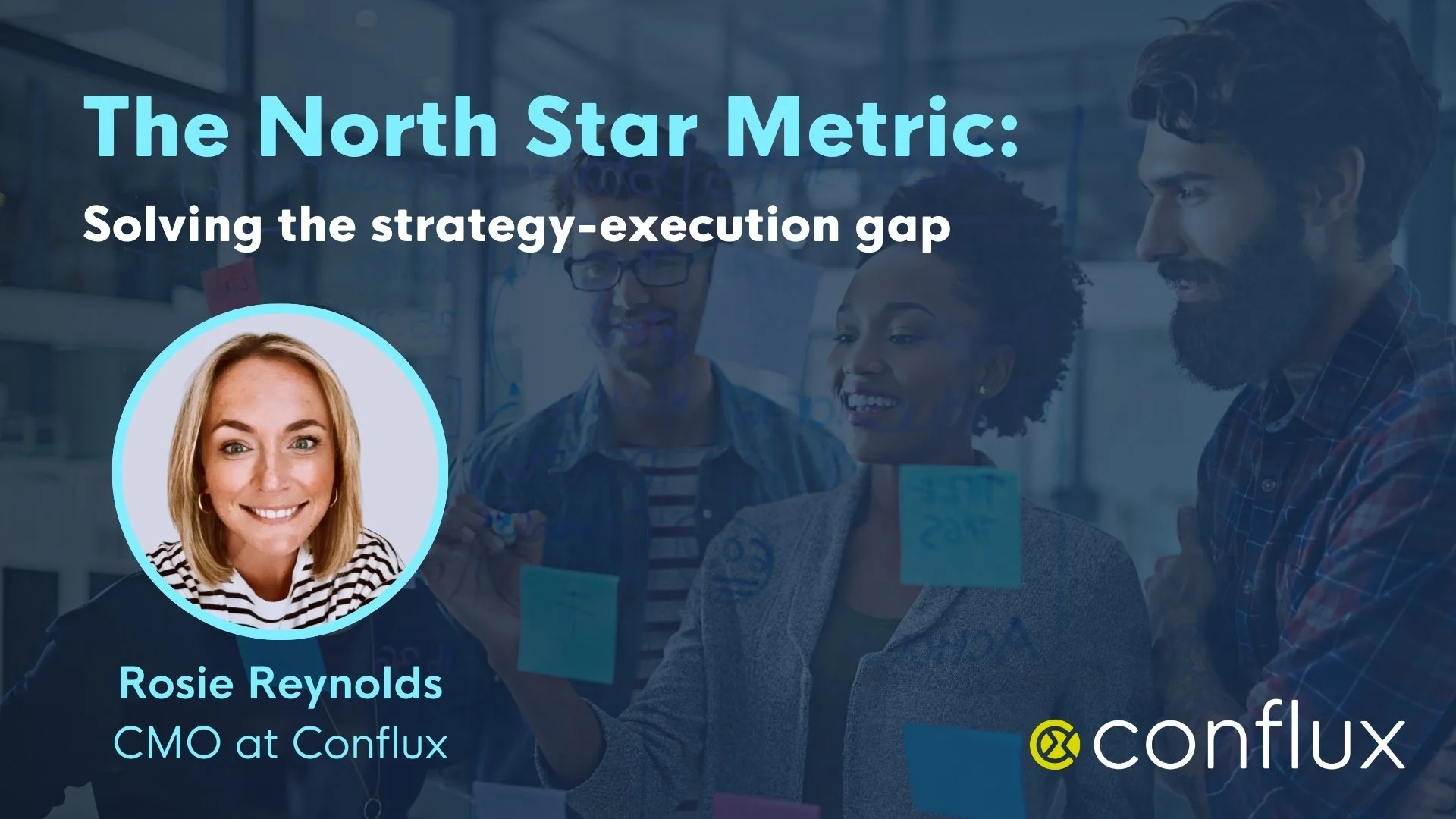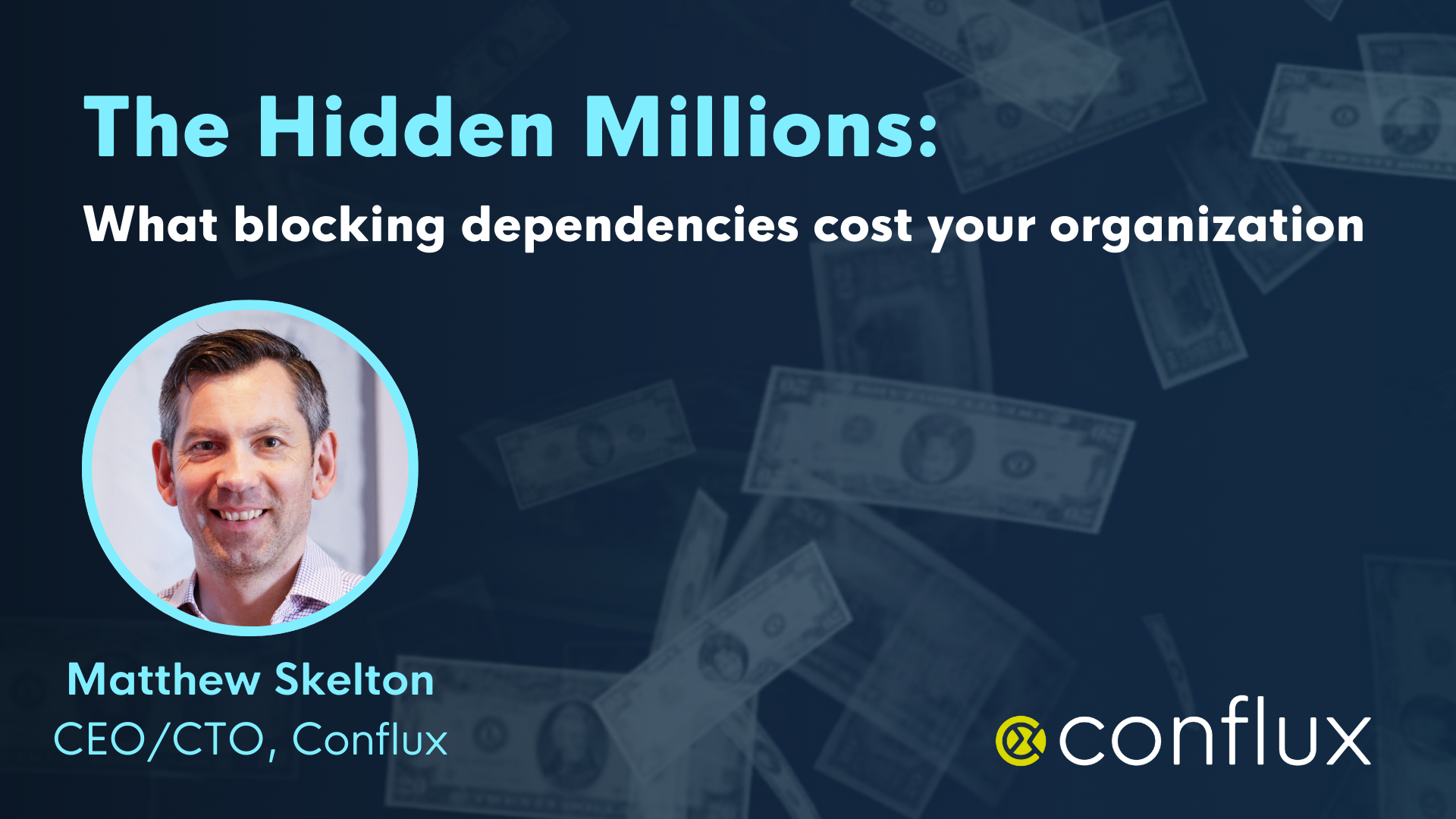Conflux insights on fast flow
Learn how leading organizations increase operational efficiency and shorten time-to-value.

How to scale without slowing down: a leader's guide to economies of empowerment
Economies of empowerment enable organizations to achieve outsized outcomes by focusing on the agency of individuals, teams, and departments, providing an ideal path to simplified transformation. This approach offers the benefits of both speed and scale, delivering value faster with fewer blockers, enabling recurring cost savings, and maintaining high team engagement and satisfaction.

Leadership alignment: How CTOs can forge more productive relationships with Finance and executive peers
Daniel Walters, a Consultant at Conflux, shares his experience as CTO for Seek Asia (2015-2020), where building strong relationships with his CFO and executive peers proved essential during the acquisition and merger of two of Southeast Asia's leading employment marketplaces.
Daniel’s partnership with CFO Jakson Peters transformed initial friction into strategic alignment, enabling successful integration while modernizing delivery practices across the combined entity.

Tales from the Roundtable: AI won’t close the skills gap
Georgina Shute reflects on a roundtable led by Matthew Skelton and Renee Hawkins, revealing why building adaptive teams requires more than technology. Organizations are pouring resources into AI tools expecting them to close skills gaps, while ignoring the human connections that drive real capability growth.

The North Star Metric: solving the strategy-execution gap
Organizations often struggle to connect strategic vision with daily execution, leading to misaligned teams, competing priorities, and slow decision-making. The North Star Metric (NSM) - together with key supporting practices - solves this by providing a single, customer-focused measure that guides autonomous decision-making across the enterprise.

The Hidden Millions: What are blocking dependencies really costing your organization?
Flow matters. Blocking dependencies create long wait times between teams, and imposing significant drains on your organization’s resources, but few leaders really quantify the actual financial impact of teams waiting on other teams to release work. We talk about the root causes of these dependencies and how to mitigate them.

Team Topologies in action: Effective structures for Machine Learning teams
Structuring teams for AI adoption is a challenge for every organization, but how do you structure your teams if you are working within Machine Learning and AI development? Is Team Topologies still effective in this context? We examine how Team Topologies principles also provide robust approaches for structuring organizations developing AI and ML.

AI integration vs. Cloud computing transformation 2007-2008: Future lessons from the past
When adopting AI in any enterprise, we can learn valuable lessons from the historic revolution in cloud computing.
In 2008, Amazon’s EC2 scalable cloud infrastructure service went into full production and quickly demonstrated the power of cloud server capabilities. This period marked a fundamental shift in how organizations delivered technology solutions.

AI-native operating models: Critical pathways to enhanced value delivery
Successful AI adoption doesn't demand a complete reinvention of organizational principles — instead, it requires their intelligent evolution.
Organizations embracing AI capabilities need to look beyond surface-level implementation to achieve sustainable integration.

Empowering teams for fast flow: ABC Glofox's journey to continuous delivery
Transitioning from traditional delivery models to continuous delivery presents unique challenges.
We've teamed up with ABC Fitness’ ABC Glofox to showcase how they achieved success with fast flow, with analysis and tips on how you can apply these changes in your organization. This is the second in our series of articles exploring how ABC Glofox made the shift to continuous delivery and achieved remarkable results.

How to build a culture of knowledge-sharing
Knowledge sharing is a strategic organizational practice in which teams come together to exchange expertise and learn from each other. This creates more effective and connected organizations that can deliver value quickly.

The ROI of fast flow: Real-world impact on enterprise performance
Leading organizations are seeing remarkable results from adopting fast flow practices and Team Topologies approaches. JP Morgan reduced dependencies by 60% and increased flow velocity by 73% across 7,500 colleagues. LSA's research of 410 companies shows highly aligned organizations grow revenue 58% faster and are 72% more profitable.
The impact is significant - just one hour of daily wait time costs a medium-sized organization $8 million annually. Organizations optimizing for flow see benefits across operations, finances, and culture - from reduced dependencies and faster delivery to improved profitability and employee engagement. The evidence is clear: investing in team design, organizational alignment, and flow optimization delivers substantial returns.

The Evolution of DevOps: How Platform Engineering and AI Are Transforming Software Delivery
Software development is a fast-paced industry, and the landscape is constantly shifting. From the early days of throwing code "over the wall" to operations teams, to the DevOps revolution, and now to the era of platform engineering - the journey has been one of continuous improvement and adaptation. Today, we're witnessing another seismic shift as Artificial Intelligence (AI) enters the fray, promising to revolutionize how we approach software delivery and operational excellence.

Reshaping teams and aligning to value streams with fast flow
From Feature Factory to Customer-Centric Innovation: ABC Glofox's Transformation Journey.
In the competitive world of fitness technology, ABC Fitness’ ABC Glofox, a studio and gym membership management software provider, faced a common challenge for innovative software companies: the risk of becoming a 'feature factory' while losing sight of their main objectives. This is the first in a series of articles exploring how ABC Glofox made the critical shift from feature-driven development to outcome-focused innovation using fast flow.

Change the system, not the person. Why well-being needs to start with organizational change.
Over the past decade, organizations have given increasing attention to employee well-being. Recognising the importance of fostering a healthy, happy and supported workforce, and the obvious benefits to business outcomes, employers are keen to emphasize how employee well-being is a key focus of their organization.
Yet over half of employees believe their employer is guilty of well-being washing and a recent research study by William Fleming Oxford's Wellbeing Research Centre concludes that individual well-being interventions have little to no impact. Putting some possibly justifiable cynicism to one side for a moment, what could be causing this gap between intention and impact?

Addressing misconceptions on Psychological Safety to improve performance
Psychological safety is a foundational requirement for organizations seeking fast flow and effective change. We have seen a couple of articles recently that suggest psychological safety could have a downside, so we decided to reflect on the issue.
An article in Fortune in 2023 suggested that performance is improved when everyone is ‘held accountable’ and implied that this was at odds with psychological safety. Another (Hive Learning) suggested that being ‘comfortable’ was the opposite of psychological safety, though it did acknowledge that you could be comfortable with either scenario.
In this article, we review the benefits of psychological safety, why these benefits occur, whether or not there is a downside, and what you should be ‘comfortable’ with.

TagMe: Aligning autonomy and empowering execution
Organizations achieve speed and scale simultaneously by fostering "infrastructure for agency." The TagMe framework is a vital part of this infrastructure, empowering teams to define their contribution to strategic goals, creating psychological ownership, and enabling aligned autonomy through clear Targets, Guardrails, Metrics, and Examples.

Key ideas for fast flow and DevOps transformation - from DevOpsDays Oslo 2023
Summary: pay attention to group dynamics for effective transformation
The common theme that emerged from the sessions I attended at DevOpsDays Oslo 2023 is really that structure is not going to save or fix your digital transformation. Instead, we need to pay attention to the group sizes, group interactions, and group experience when using tools.

Social and technical practices for fast flow - insights from Agile Manchester 2023
… it’s actually the sociotechnical aspects of delivering and operating software that are the most crucial, that the social and the technical cannot be easily separated.
This was apparent even in Matthew’s opening keynote when talking about deployment pipelines and how often they mirror the team structure in an organization. “Show me your deployment pipelines and I will predict your team boundaries.”

Optimizing for Fast Flow: Key factors for organizations seeking effective software delivery and team wellbeing
The mini-book answers key questions such as how to structure organizations and teams, how to get the most from all of your team members, and how to identify and remove inhibitors of flow. And there is a detailed section on the relative merits of different models of change. Should there be a central change department, for example?

The financial value of psychological safety in technology organizations
The research from DORA shows that, for technology organizations, psychological safety is a double whammy. An absence of psychological safety will contribute to poor software delivery performance, deployment pain, and employee burnout. On the other hand, the presence of psychological safety will contribute to improved software delivery performance, organizational performance, and job satisfaction. It’s double or quits.
